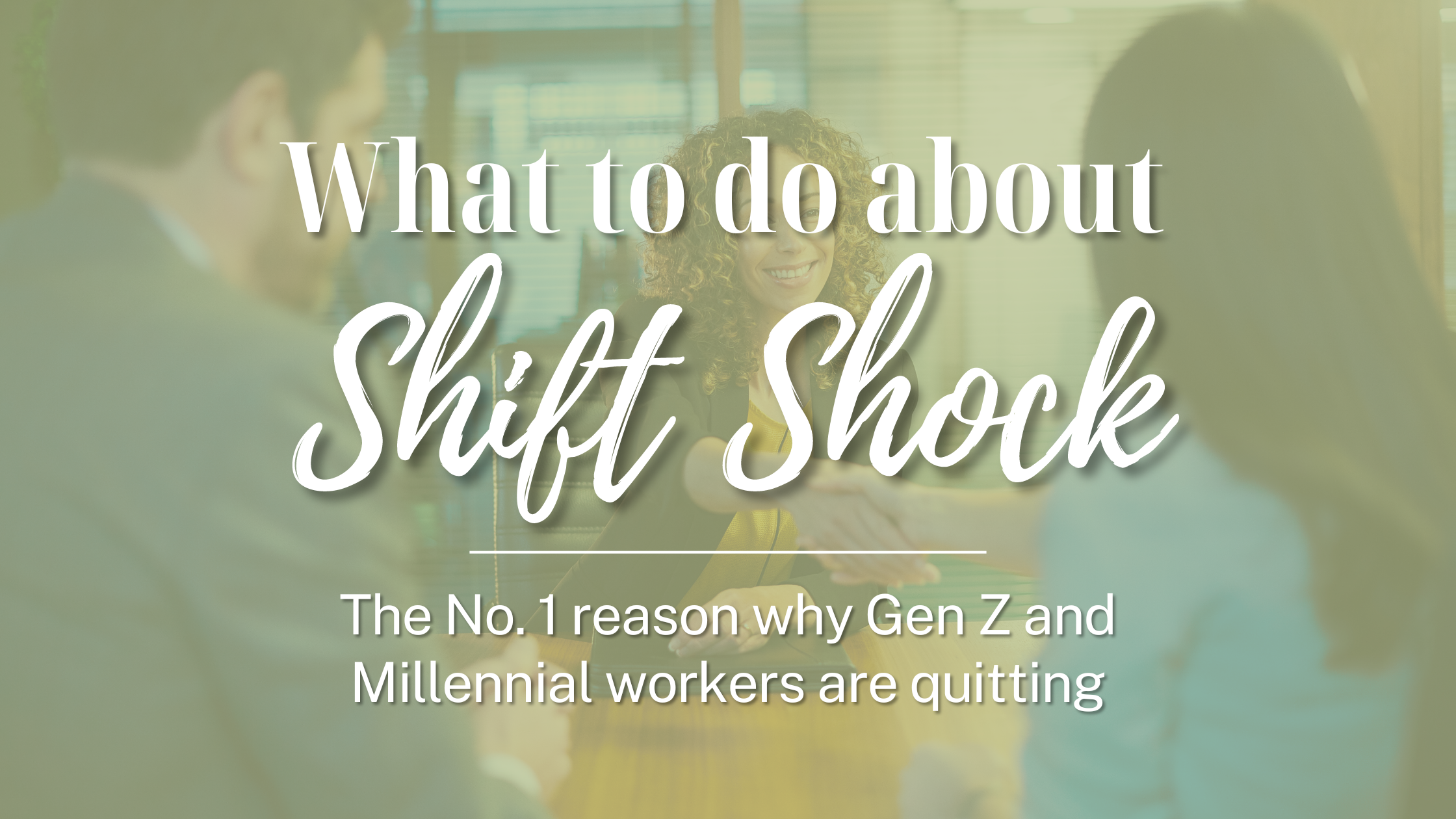What to do about ‘shift shock’ – the No. 1 reason why Gen Z and Millennial workers are quitting

Article originally published by HRMorning.com on December 5, 2023. Written by Brian Bingaman.
Shift shock occurs when there’s a surprise disconnect between a new hire’s expectations for their employee experience and what happens after they start working for an employer.
Shift shock, and the feelings of regret that follow, are what’s driving a lot of Gen Z and Millennials to leave their jobs and work somewhere else, according to Kathryn Minshew, founder and former CEO of The Muse, a career platform used by over 70 million people to find jobs at companies whose people, benefits and values align with their professional needs.
“When people feel that the impression they’ve been given of a job, of a team, of a company is not the reality that they encounter when they walk in the door, they’re much more likely to report disengagement. They are much more likely to report frustration and other (kinds) of negative emotions. And most importantly, they’re much more likely to leave,” she said on an episode of the HRMorning podcast “Voices of HR.”
Although workers prefer to stay in a job, a whopping 75% of Millennial and Gen Z workers said they were willing to quit within the first six months, according to research by The Muse.
Factors behind shift shock
Minshew said a leading contributor to shift shock is lack of transparency in job descriptions and about company culture. Recruiters often paint a rosy picture of a job and downplay the downsides. This can lead to a mismatch between what candidates think working for your organization will be like and what they experience on the job after they’re hired.
Minshew likened it to dating. “We’re not saying that you go (on) a first date and you bring every piece of dirty laundry from your past. You have to show up as yourself, and you’re, of course, putting your best foot forward. But you have to be real, because if you are disingenuous in those early conversations, you might end up with someone who wants to date a totally different person,” she said.
Other shift shock contributors are disrespectful behavior from managers, a lack of inclusion, unethical practices and a cutthroat work environment. Research by The Muse found that just under 80% of Gen Z and Millennial employees reported experiencing a toxic workplace at some point in their career.
“What people expect from work and how they expect to be treated and how they will tolerate being treated, it’s changed dramatically in the last two years, the last 10 years,” she said.
Areas where HR can take action
According to Minshew, HR pros can reduce shift shock and turnover, and create a more productive work environment, by being more honest with candidates about the realities of working at their companies and the job roles they’re interviewing for, including the challenges as well as the rewards.
She offered this example: “‘We are really great at XYZ. We also sometimes find that candidates who expect ABC can get frustrated because timelines take longer here, or we require a lot of input to make a decision.'”
Minshew’s other recommendations include:
Holding managers accountable for their behavior. Toxic workplaces often start with toxic managers, and HR needs to proactively address problems. “It’s easy if somebody is a terrible human and a low performer to exit them from a business. It’s much more complicated if they are terrible to their colleagues or their (direct reports) and they hit their numbers. That’s where I think employees are looking around and saying, … ‘Do we really have standards about how we treat each other? Or do those standards only apply when it’s convenient?'” Minshew commented.
Promoting diversity, equity and inclusion. “We are seeing, particularly for Gen Z and Millennial candidates, that there’s just less tolerance for companies that are monocultures,” Minshew said.
Having a well-thought-out remote work policy. “The second biggest driver of employee departures is lack of flexibility, or changing policies, around remote work and work from home. And interestingly, it also comes up as one of the (most popular things) that job seekers are looking for in where they’ll join,” she said.